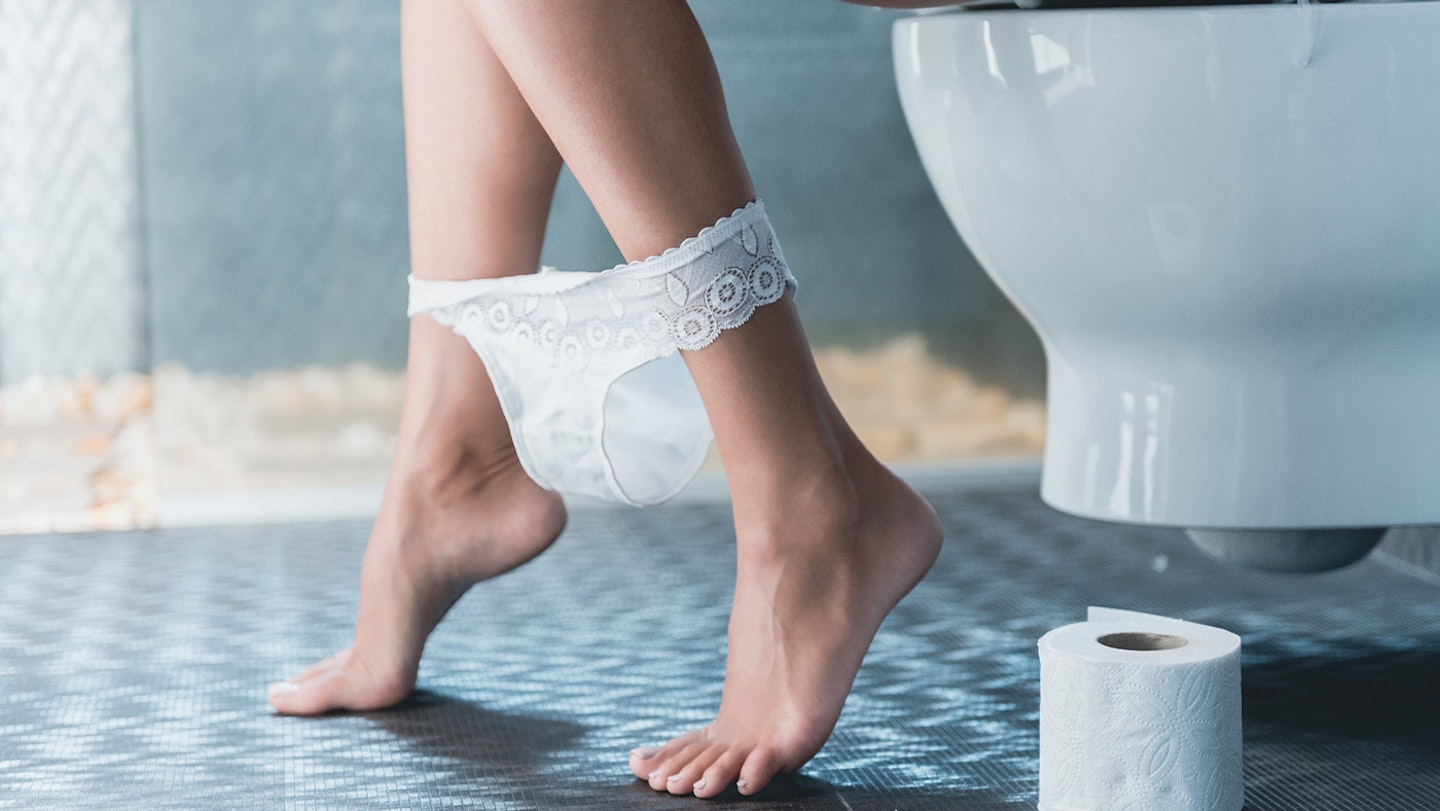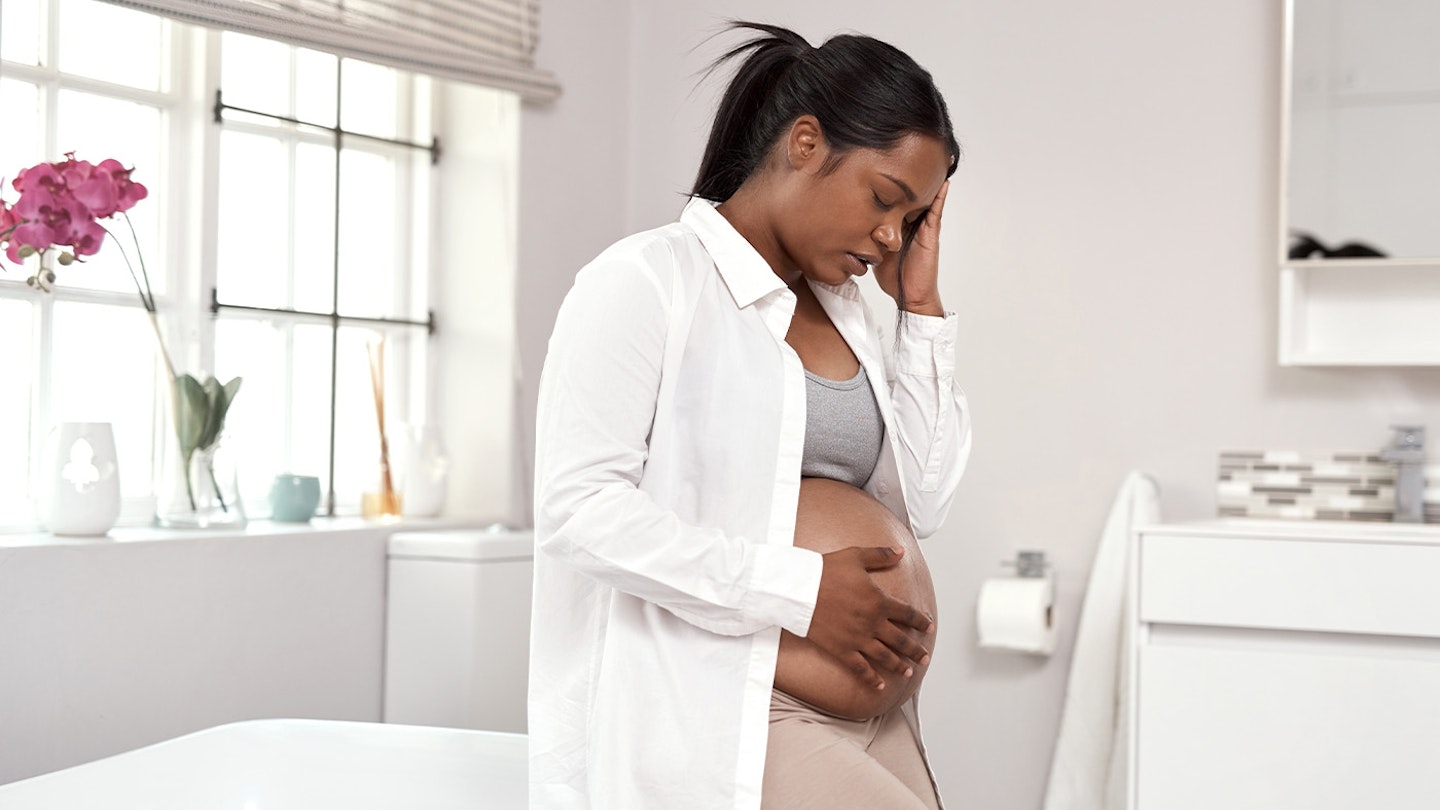It’s never nice to get a bad tummy, and diarrhoea can cause a lot of pain and make us feel very uncomfortable until the bug is out of our system.
If you experience diarrhoea in pregnancy, you might be worried that it’s a result of something you’ve eaten, but in many cases, women can experience diarrhea in pregnancy due to the hormonal changes happening in pregnancy. However, it can sometimes be a result of something more serious.
We spoke toBaby and Parenting Expert Rachel Fitzd, who has some advice for mums struggling with diarrhoea.
Is diarrhoea in pregnancy normal?
Bowel changes in pregnancy are very normal - sometimes constipation and sometimes diarrhoea. If you've previously suffered in the past from IBS you may find your IBS symptoms change in pregnancy. The causes are a combination of lifestyle changes and the increase in hormones and womb activity alongside the reduction in space for the intestines. It is never wise to take any medications for diarrhoea which have not been prescribed by a GP even if the diarrhoea is due to a tummy bug.
What causes diarrhoea in pregnancy?
Sitting in the middle of the pregnant body, is 9 metres of intestine which week by week gets pushed further and further to the edges of its natural home, to make way for the newest member of the human tribe, so it’s no wonder women commonly experience changes in the way their guts work.
Many women are all too aware, even before they embark on pregnancy, just how much hormones can affect the way their bowels work - particularly when the womb is more active around the time of their monthly period. In pregnancy the combination of changing hormones, reduced space, and the increased womb movements due to Braxton Hicks contractions and a kicking baby can really ramp up gut shenanigans and whilst constipation is common and often discussed by women and their midwives, for some women, the opposite problem rears up - diarrhoea.
There are a number of reasons why a woman might have looser bowel movements when she’s pregnant. Here are some of the most common:
• A change to a healthier, more fibre-rich diet
• An increase in stress
• Some medications such as iron tablets
The gut is also very sensitive to being knocked about - more often than not it responds by shutting up shop and women experience constipation but, for others, the irritation of the bowel from a kicking baby can cause ‘the runs’.
Likewise, when the womb contracts it can affect the bowels in the same way as it might during the early days of a woman’s menstrual period by triggering diarrhoea. This is really noticeable when the contractions ramp up at the very start of labour and one of the cardinal signs of early labour is that women can’t stay off the loo for long due to having a good old bowel clear-out.

Could it be a tummy bug?
Of course it is just as possible in pregnancy as any other time of life to get food poisoning or a tummy bug so it is always wise to discuss any bowel changes with your midwife so they can make sure that the diarrhoea is not a sign of anything more concerning needing treatment. However, as worrying as it is, a tummy bug with diarrhoea is very unlikely to cause a miscarriage.
Tablets to stop diarrhoea should never be necessary if a woman is otherwise well and should, in any case, always be prescribed by a doctor and never just be bought over the counter in pregnancy. If the diarrhoea is due to a tummy bug then it is sensible to stay hydrated, rest as much as possible and eat small, light meals.
Is diarrhoea in pregnancy anything to worry about?
Diarrhoea rarely poses a threat to the pregnancy but women should let their midwife or GP know if they have ongoing loose bowels and should always call the labour ward if they experience diarrhoea alongside contractions and not due.
When to see a doctor
Because womb contractions can cause diarrhoea it is not unusual to have diarrhoea during a miscarriage and to think that it was the loose bowels and gut cramping which caused the miscarriage. However, the reality is actually the other way around - the womb contractions which happen when a woman sadly loses her baby can cause gut spasm and diarrhoea.
If the due date is still a way off on the horizon and a woman has diarrhoea alongside contractions, it is always important to call the labour ward for advice in case it is an early sign of premature labour. It might simply be the head engaging into the pelvis which is causing the problem and it will all settle down again in due course, but this really is a case of ‘better to be safe than sorry’.
When will it stop?
The looser stools some women experience, caused by normal pregnancy changes, tend to come and go and cause no problems. If iron tablets are to blame then it is wise to chat to the GP or midwife to see if the dose or brand of medication can be changed to something less irritating.
For some women it is the change to a healthier diet which upsets the bowels. This generally settles down as the guts get used to the increase in fruit, veg and fibre but, if it is a problem, then it might be gentler on the gut to go back a step or two and reduce fibre intake just a little whilst the tummy adapts before gradually increasing again. With time the intestines settle down and will be much healthier in the long run for a healthier diet as will mum and baby.
Once the baby is born, the intestines gradually settle back into their usual spot in the abdomen and these settling movements can cause ‘phantom kicks’. Before long the months of pregnancy gut upsets are behind us normal service is resumed!
About the expert
Baby and parenting expert and published author, Rachel Fitzd is one of the expert speakers at The Baby Show, the UK’s leading pregnancy and parenting event, returning to Excel this week on 4-6 March and will play host to the UK’s leading baby and parenting experts and guest speakers.
